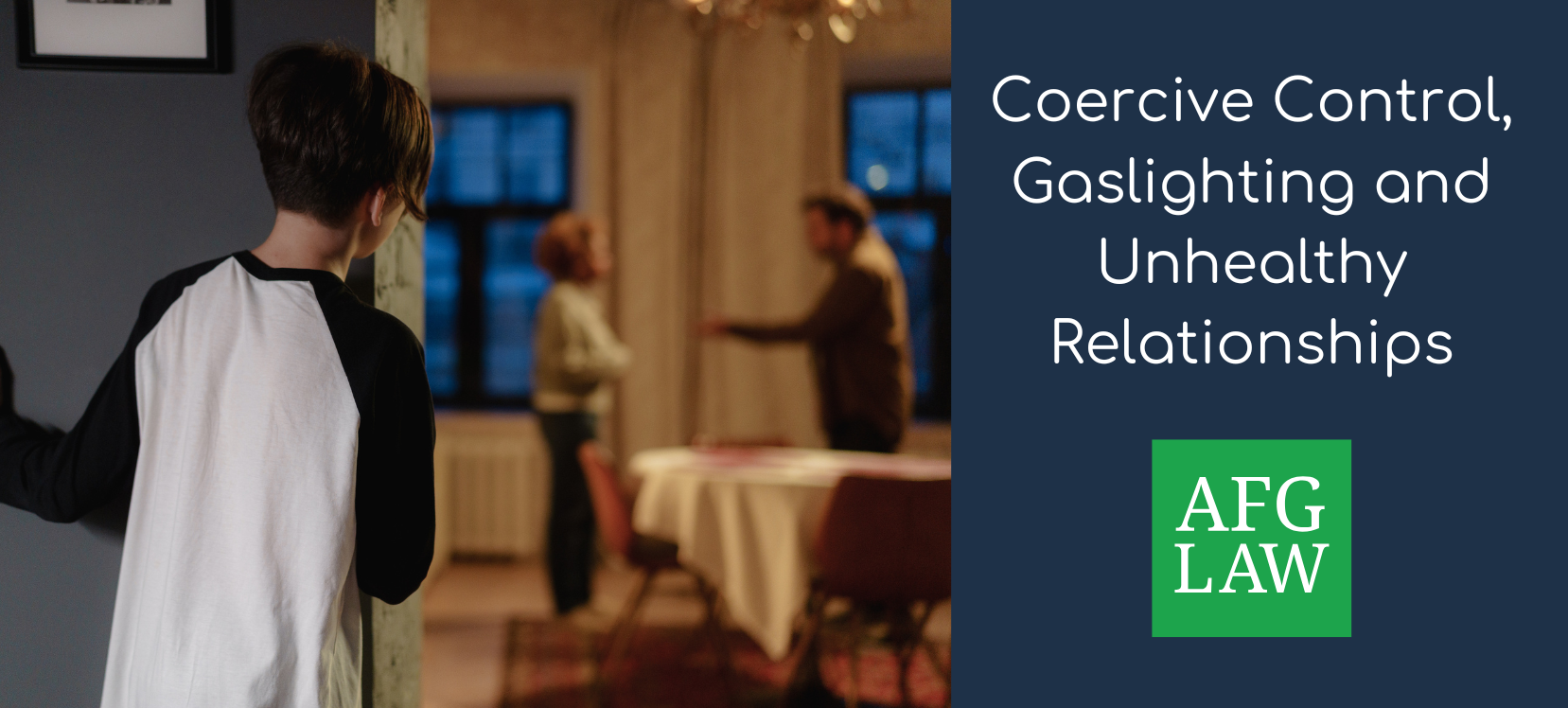Introduction
Unhealthy relationships can manifest in various forms, often involving psychological and emotional abuse. Two common tactics used by abusers are coercive control and gaslighting. These behaviours can have devastating effects on the victim’s mental health and overall well-being.
Domestic abuse can happen to anyone regardless of age, background, sex, gender, religion, ethnicity or disability. Don’t let any worries you may have about whether you will be believed stop you from getting help. At AFG LAW, our expert Family Law solicitors regularly support and advise people affected by domestic violence and abuse. Our friendly, easy to talk to solicitors have helped hundreds of people over the years and can use their experience to help you deal with this difficult time.
The below guide, written by Emma Cordock, Head of the Family Department and Director at AFG LAW, explains what coercive control, gaslighting and unhealthy relationships can look like.
Coercive Control
Coercive control is a strategic form of ongoing psychological abuse aimed at dominating and controlling the victim. Coercive control involves a pattern of abusive behaviour which is designed to harm, frighten or punish the victim. It may include acts such as threats, humiliation, intimidation. Below are some of the key characteristics to look out for in coercive control.
Key Characteristics of Coercive Control:
- Isolation: The abuser may isolate the victim from friends and family to increase dependency.
- Monitoring: Constant surveillance of the victim’s activities, communications, and whereabouts.
- Manipulation: Using guilt, fear, or obligation to control the victim’s actions.
- Financial Control: Restricting access to money or resources to limit the victim’s independence.
Gaslighting
Gaslighting is a specific type of psychological manipulation where the abuser makes the victim question their reality. Gaslighting can be, and often is, used simultaneously with coercive control to further undermine a victim’s confidence and feeling of autonomy.
Signs of Gaslighting:
- Denial of Facts: The abuser denies events or facts that the victim knows to be true.
- Distortion of Reality: The abuser twists information to make the victim doubt their memory or perception.
- Undermining Confidence: The abuser constantly belittles the victim’s feelings and thoughts, making them feel incompetent or unstable.
Impact on Victims
The effects of coercive control and gaslighting can be profound and long-lasting. Victims may experience severe anxiety, depression, low self-esteem, and a sense of helplessness. This, in turn, may lead to their feeling an increased need for dependence on the abuser.
Recognizing Unhealthy Relationships
It’s crucial to recognise the signs of unhealthy relationships early on. Some red flags include:
- Excessive Jealousy: Unwarranted jealousy or possessiveness.
- Control Over Personal Choices: Dictating what the victim wears, who they see, or where they go.
- Emotional Manipulation: Using guilt trips or emotional blackmail to get their way.
- Lack of Respect: Disregarding the victim’s boundaries and feelings.
Coercive control and gaslighting are forms of abuse that can severely impact an individual’s mental health and well-being. Recognising these behaviours is the first step towards breaking free from an unhealthy relationship. Remember, everyone deserves to be in a relationship where they feel safe, respected, and valued.
If you or someone you know is experiencing coercive control or gaslighting, it’s important to seek help. Our friendly family solicitors at AFG can offer expert legal representation for all domestic abuse cases.
Contact familysolicitor@afglaw.co.uk for further information or call us on 01204 377600.
